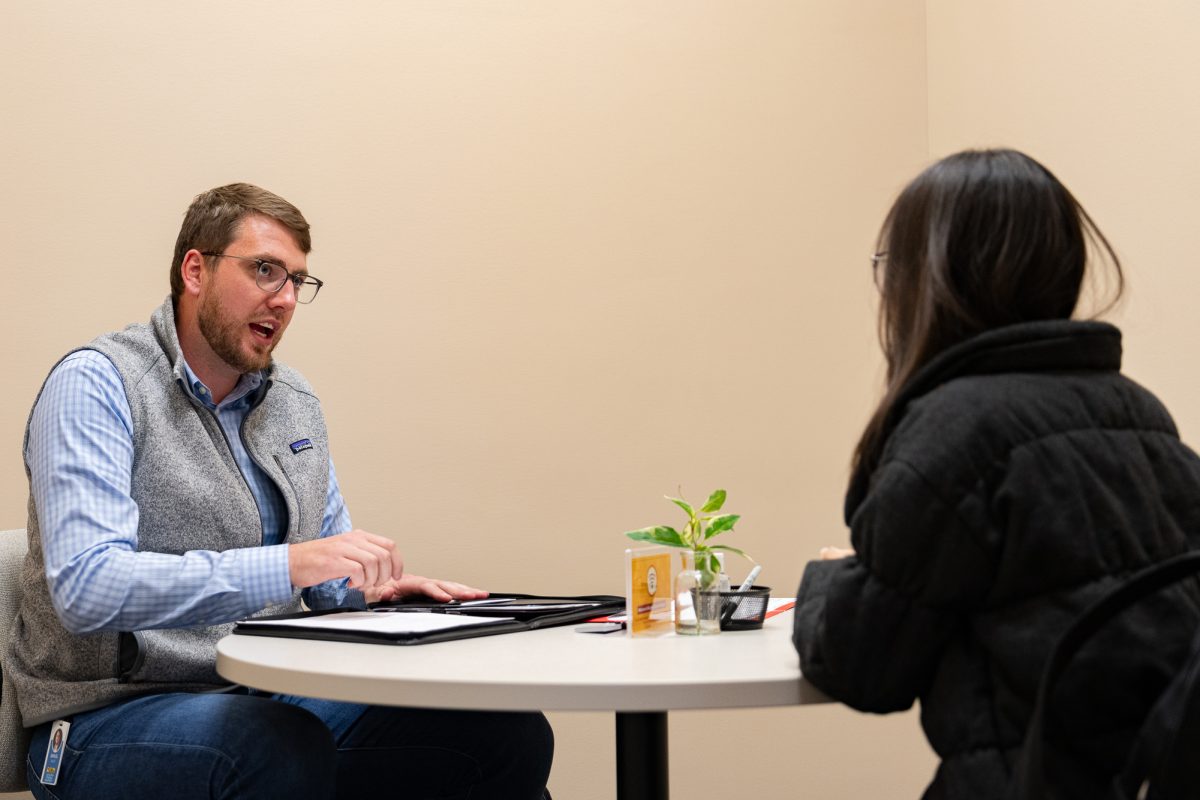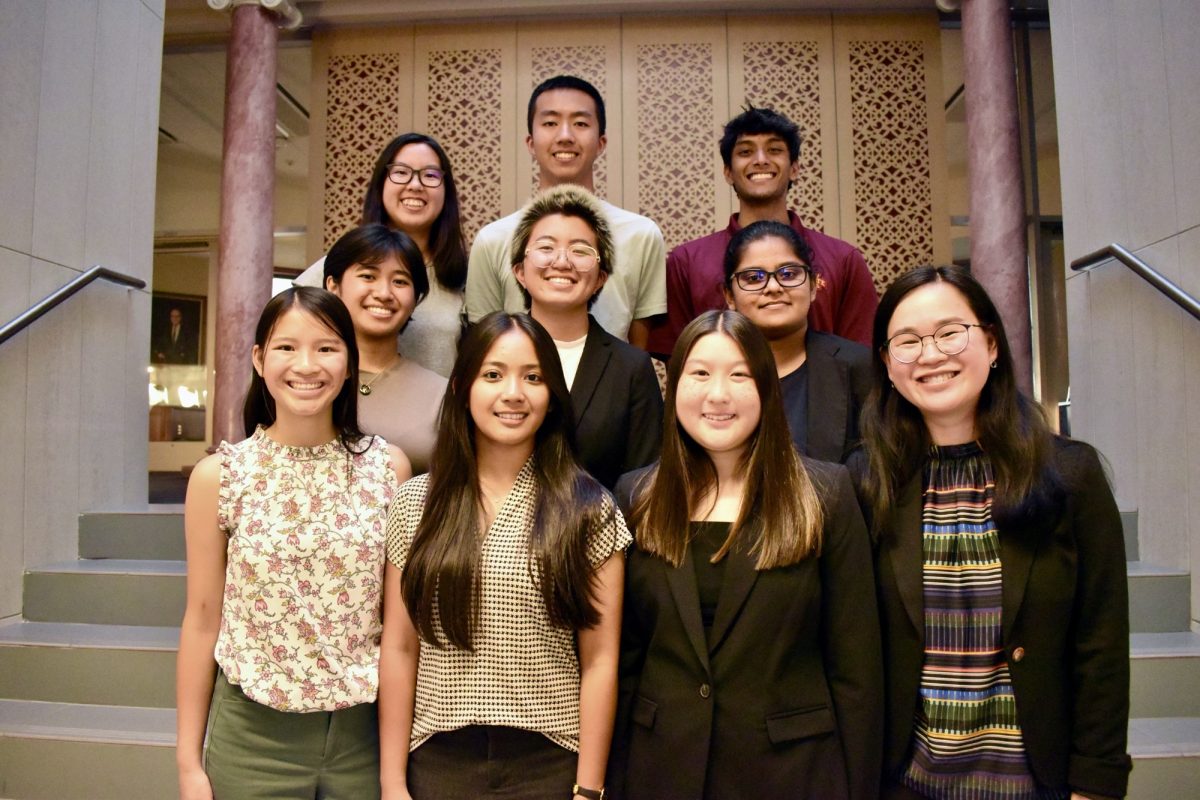Fly that lame cashier to Cambodia!
July 30, 1998
Last summer, while I was waiting in line to buy a vintage lamp at a Salvation Army Store (in a community other than Ames), I noticed that the customer in front of the line was experiencing a communication problem with the cashier.
The customer appeared to be a middle-aged woman of Southeast Asian descent. She was dressed in a torn, brown sweater and a shabby, orange pair of slacks; this clothing was draped loosely over her frame in such a way that her body seemed almost skeletal.
She spoke quietly and hesitantly, repeating her words, and she was leaning forward in order to better listen to the cashier. The customer was unable to fluently speak or easily understand English. Throughout their broken dialogue, the customer maintained a polite smile, full of painfully crooked teeth, although her eyes revealed the anxiety she must have been feeling inside.
The cashier was a sturdy, formidable-looking woman with a frizzy yellow permanent wave in her hair and a curt tone in her voice. She was rasping at the customer — “Listen! Listen!” — repeating the price again and again, oblivious to any words the customer was trying to pronounce.
Apparently, the customer was attempting to bargain with the cashier. She was trying to get a better deal on a rumpled secondhand hat. After a few minutes of this exchange, the cashier began to make little clicking noises with her tongue. She sighed dramatically, rolling her eyes at the other customers in line as if to apologize to them for wasting their time, and then she raised her unpleasant voice to an even greater volume, showing off her displeasure.
I will not bore anyone with the details of how I intervened in this situation because what I said and did is not important. I just wanted to buy my hip vintage ’60s lamp and get out of there in a hurry, anyway.
What is important to remember from this scene is the behavior of the cashier. Those little clicking noises she made with her tongue said it all. “Why can’t these people learn how to speak English?” she wanted to know. “What’s wrong with them? Why should I have to listen to their gibberish?”
I will wager that this woman thinks she loves America. She will be the first person to tell you with absolute certainty that America is the greatest country on God’s green earth — and she very well may be right.
But I have news for her.
If (heaven forbid) America should ever fall from its lofty pinnacle of greatness, this cashier and her ilk will accelerate the plunge. She is one of those dry, old lumps that spoil the flavor in our great American melting pot. The Salvation Army ought to fire her pompous ass.
I wish I could teach her to really love America. If I ever win the Powerball jackpot, I will use some of my millions to create a special foreign exchange program designed to educate and enlighten this same cashier and all ignoramuses like her.
I will abduct every last one of them, and I will fly them non-stop to a tropical agrarian commune amid an isolated Cambodian mine field, where they will learn how to cultivate rice. I will hire non-English-speaking instructors from the Khmer Rouge to facilitate this learning experience. There will be no physical abuse permitted, but the cashier’s daily food rations will be diminished each time she speaks English during class time.
When the cashier and her fellow learners have mastered the art of cultivating rice in the mine field, and when they are able to articulate their newly impassioned love for America in the Khmer language, the learners will be allowed brief, supervised, culture-centered field trips to Phnom Penh. In Phnom Penh, the learners will be allowed to sell on the street any unnecessary American luxury items they might have brought, such as watches, combs and belts, in exchange for Cambodian currency. After they have successfully hawked these items, the learners will be able to spend their new mad money on some of the local cuisine.
By employing a communicative approach to cross-cultural learning, my program for these learners will instill sensitivity for the needs and difficulties of newcomers in America. It will show them that there are significant differences between English and other languages. The field trip excursions they earn through their acquisition of rice-cultivating skills will offer them a chance to learn bargaining techniques in tropical open-air markets.
When our friendly cashier graduates from the program, she will be permitted to return to Iowa, and I guarantee you, she will be a changed person. After she is reappointed to her former position at the Salvation Army, she will appreciate air conditioning! Gone forever will be that sour expression she once wore. Non-native speakers of English will enjoy first-class customer service.
If not … Well, don’t worry. I’ll send her back to the Khmer Rouge. They’ll know what to do with her.
Tom Owings is a graduate student in English from Ames. He is the opinion editor of the Daily.






